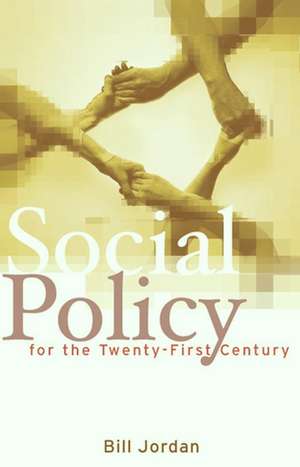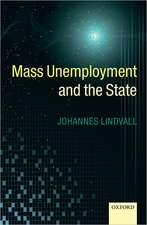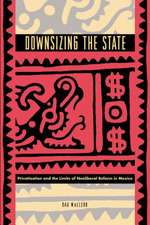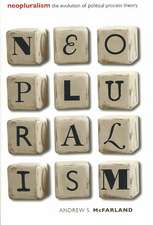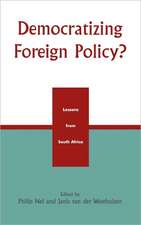Social Policy for the Twenty–First Century – New Perspectives, Big Issues
Autor B Jordanen Limba Engleză Paperback – 24 mai 2006
This book shows how social policy can address these big issues, and how they relate to each other in an integrated world economy. Drawing on perspectives and analyses from political and social theory, economics, psychology, migration studies and international relations, Bill Jordan gives a new account of the links between global human development and individual well-being. He analyses the purposes and strategies of international organizations, business corporations and ordinary individuals, using case examples from all over the world.
Essential reading for anyone interested in the future of social policy.
| Toate formatele și edițiile | Preț | Express |
|---|---|---|
| Paperback (1) | 226.58 lei 6-8 săpt. | |
| Polity Press – 24 mai 2006 | 226.58 lei 6-8 săpt. | |
| Hardback (1) | 494.84 lei 6-8 săpt. | |
| Polity Press – 24 mai 2006 | 494.84 lei 6-8 săpt. |
Preț: 226.58 lei
Nou
Puncte Express: 340
Preț estimativ în valută:
43.36€ • 45.18$ • 35.90£
43.36€ • 45.18$ • 35.90£
Carte tipărită la comandă
Livrare economică 03-17 aprilie
Preluare comenzi: 021 569.72.76
Specificații
ISBN-13: 9780745636085
ISBN-10: 074563608X
Pagini: 304
Dimensiuni: 153 x 229 x 16 mm
Greutate: 0.45 kg
Editura: Polity Press
Locul publicării:Chichester, United Kingdom
ISBN-10: 074563608X
Pagini: 304
Dimensiuni: 153 x 229 x 16 mm
Greutate: 0.45 kg
Editura: Polity Press
Locul publicării:Chichester, United Kingdom
Public țintă
Students and teachers on single honours social policy degrees, and on social policy options in social work, social policy and public administration degrees.Notă biografică
Bill Jordan, Professor, Universities of Plymouth, Huddersfield and London Metropolitan University
Descriere
In the new century, governments face three challenges for their social policies. Their efforts to improve their citizens' well-being must be consistent with the development of the world economy, and should if possible enhance the situation of the poorest populations.
